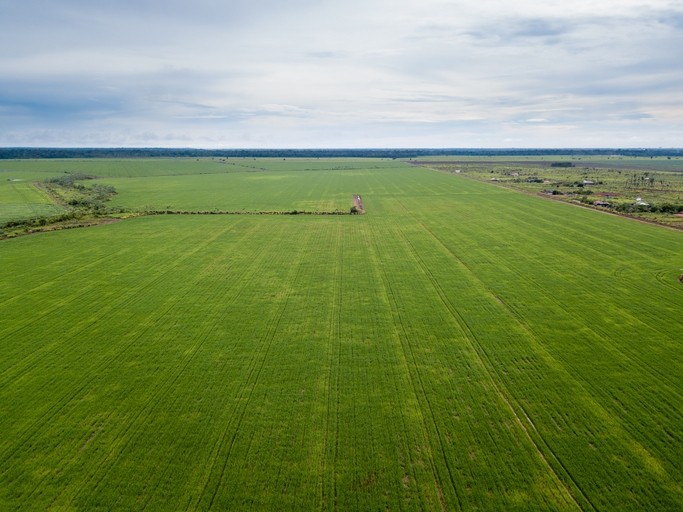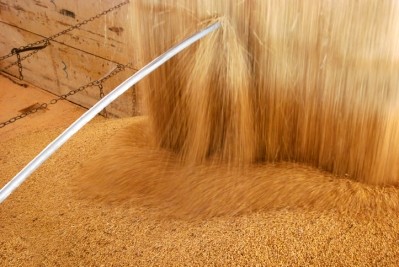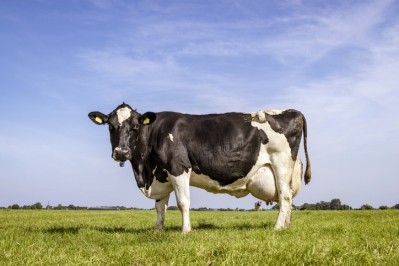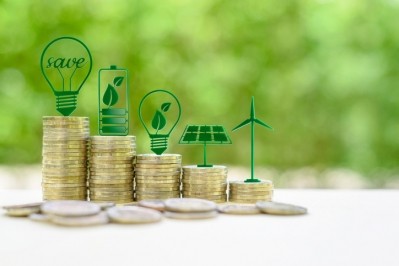Agrifirm shares protocol for buying deforestation and conversion-free soy

Although the Dutch feed industry is covering its soy footprint with responsibly produced soy for many years now, the transition to physical responsible soy has not taken-off, said the feed manufacturer. In conjunction with Netherlands-based dairy cooperative, FrieslandCampina, the company has, therefore, been working towards a physically separated supply chain of guaranteed DCF soy in Europe.
By making the protocol public, the partners said the information will be freely available for use by other parties that are looking to make the transition to guaranteed DCF soy purchasing for use in animal feed.
"The protocol provides clear guidelines,” said Ruud Tijssens, group director, public and cooperative affairs, Agrifirm.
The document relies on the definitions for DCF sourcing as per the Accountability Framework Initiative (AFi).
Risk profile of sourcing regions
It is possible to set up a DCF soy chain to Europe, stressed Tijssens. "Since March 2022, over 20,000 tons of guaranteed DCF soy have been supplied by Agrifirm and put into production for FrieslandCampina's dairy farmers."
The first delivery of 12,822 tons of such soy for that joint pilot with FrieslandCampina came from Mato Grosso in Brazil, which is considered a high-risk area, he added.
"Our commitment is to have guarantees that the soy we process in animal feed is completely deforestation-free. On the other hand, we also want to continue to exert a positive influence in areas at risk of deforestation. We choose not to withdraw from high-risk areas, but rather to stimulate demand for DCF soy in these areas," continued Tijssens.
The procurement protocol includes a study of the risk of deforestation and land conversion in Canada, the US, Paraguay, and Brazil. Different verification requirements are imposed on the supply chain based on the risk profile of the country or state. Suppliers of soy from regions with a high risk of deforestation and land conversion must meet more extensive verification requirements than soy suppliers from regions with a low risk of deforestation and land conversion.
To assess the conversion and deforestation risk in the sourcing areas of the pilot, Agrifirm has made use of publicly available documentation, such as the satellite monitoring by MapaBiomas, TerrasBrasilis, Global ForestWatch and Trase; and reports about land conversion in the Amazon and Cerrado by ABIOVE and Agrosatelite.
Certfication
The protocol also describes the role of certification. RTRS certification of the physical soy is one of the options for purchasing DCF soy, as is the purchase of physical soy that adhere to schemes meeting the FEFAC soy sourcing guidelines and conversion-free criterion no. 34.
In addition, Agrifirm said that for all physical soy that is not purchased in accordance with one of these schemes, it will continue to purchase RTRS Book & Claim certificates in order to comply with all sector agreements.
The procurement protocol for DCF soy applies to the purchase of all soy by Agrifirm since March 2022 for the proejct it is running with FrieslandCampina. However, the feed company said it is also investigating the possibility that all the soy that it imports would be in accordance with the protocol.
The guidelines will be refined and republished in spring 2023, based on feedback to date from industry stakeholders, confirmed the partners.
EU regulation on deforesation - risk of exclusion of smallholders from EU market
COCERAL, FEDIOL, and FEFAC, representing the EU grain and oilseed trade, crushing and animal feed industries, are calling on the Council and European Parliament to ensure strong and structured partnerships between the EU and producing countries to create the necessary enabling environment for compliance with the new EU regulation on deforestation.
They are asking the co-legislators to ensure urgent and meaningful measures accompany the regulation to enable government-to-government engagement, to reverse the negative impact of the EU regulation on smallholders and to have a larger number of smallholders compliant with the rules.
The traceability requirements of the EU regulation are expected to lead to the exclusion of many smallholder farmers from the EU market in various commodity sectors, said the trade groups.
“While an oral political agreement took place during the trilogue discussion of December 5, 2022, we understand the technical details have not been finalised and that the fate of Article 28 on cooperation with third countries remains uncertain.
“Failure to guarantee strong wording on cooperation with third countries, as proposed by the European Parliament, will result in the exclusion of the majority of smallholders from EU supply chains and limit the EU regulation’s impact on reducing total deforestation in producing countries,” warn the industry representatives in a joint statement released today.









